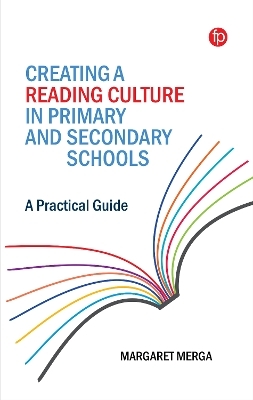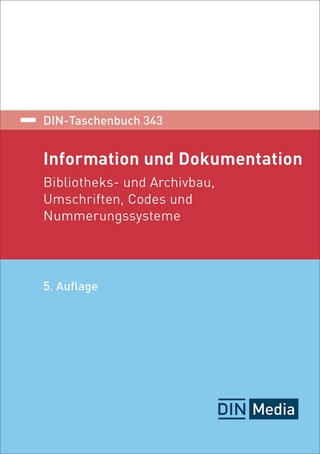
Creating a Reading Culture in Primary and Secondary Schools
Facet Publishing (Verlag)
978-1-78330-638-1 (ISBN)
Did your school encourage a life-long love of reading?
Children who identify as readers are three times more likely to have good mental wellbeing. A reading culture that permeates a school can transform it into a space where reading is supported, encouraged, normalised and valued. Creating a Reading Culture in Primary and Secondary Schools will help teachers and librarians to:
advocate for the importance of a whole-school reading culture with recent research in this field
select from a number of research-supported strategies underpinning a whole-school reading culture to tailor your school’s approach according to resourcing and priorities
develop a clear trajectory for building and sustaining stakeholder engagement and resourcing, including securing external funding for related initiatives
plan and manage a multi-faceted approach to enable real change within your school
Drawing on the author’s internationally-recognised experience in this field, this book will be essential reading for anyone looking to develop reading in schools.
Margaret Merga is Founder and Lead Consultant at Merga Consulting, working with schools, professional associations and government departments on a range of literacy-related projects. She also holds the position of Honorary Adjunct at the University of Newcastle, New South Wales. Margaret is author of over 100 peer-reviewed and research-informed publications, with six non-fiction books on literacy, libraries, research methods and research communications. Her research has been cited more than 2,500 times and translated into many languages. She is an experienced educator and has taught in Australia, India, Thailand, Turkey and the US, across the age spectrum from kindergarten to adult education contexts. Her recent publications include 'School Libraries Supporting Literacy and Wellbeing' (2022) which highlights her research on the relationship between libraries, reading and wellbeing and 'Creating an Australian School Literacy Policy' (2023) which details how to design and implement a whole school literacy policy. Committed to sharing research knowledge beyond academia so that professionals can use research findings in practical ways, Margaret has won numerous awards for public engagement while her work has been featured widely in the media.
Introduction
1. Why a whole school reading culture?
Reading and social and environmental supports
Expired expectations and orphaned responsibility
Reading beyond testing
Benefits of reading engagement for literacy
Literacy and cross-curricular learning
Real world advantages
The question of gender
Sliding literacy, reading interest and reading frequency
Read anything for literacy?
The ongoing importance of paper books
The importance of the school library
Recovering from COVID-19 related literacy learning loss
2. Research-supported practices to choose from
Opportunities for regular silent reading for pleasure
Supporting choice
Accessible and visible books
Investment in school libraries and collection building
Investment in qualified school library professionals
Teacher modelling
Engaging parental support Talking about books
Creating and sustaining reading spaces
Reading aloud
Professional development and laying the foundation
Promising emerging possibilities
Activities to be subject to measures of effectiveness
3. Stakeholder engagement and resourcing
Planning for initial and sustained educator and leader engagement
Parents and guardians
Grants for school based research initiatives
4. Implementation planning and change management
Leading change in schools
Assess the opportunity for change and empower others to commit
Create and support a reading culture team
Formulate and communicate a powerful vision of the change
Plan for implementation
Writing implementation plans
5. Monitor and strengthen the change process over time
Evaluation
More about goals
Introduction to basic quantitative, qualitative and mixed methods analysis and data
Getting quality evaluation data from children
Quantitative analysis and data for schools
Qualitative analysis and data for schools
Mixed methods analysis and data for schools
Determining baseline data needs and evaluation planning
Boosting quality with academic partnership
6. Reporting
Ethical reporting
Professional outputs
Media outputs
Academic outputs
Final points
Conclusions
We need more research
| Erscheinungsdatum | 24.10.2023 |
|---|---|
| Verlagsort | London |
| Sprache | englisch |
| Maße | 156 x 234 mm |
| Themenwelt | Sozialwissenschaften ► Kommunikation / Medien ► Buchhandel / Bibliothekswesen |
| Sozialwissenschaften ► Pädagogik | |
| ISBN-10 | 1-78330-638-6 / 1783306386 |
| ISBN-13 | 978-1-78330-638-1 / 9781783306381 |
| Zustand | Neuware |
| Haben Sie eine Frage zum Produkt? |
aus dem Bereich


